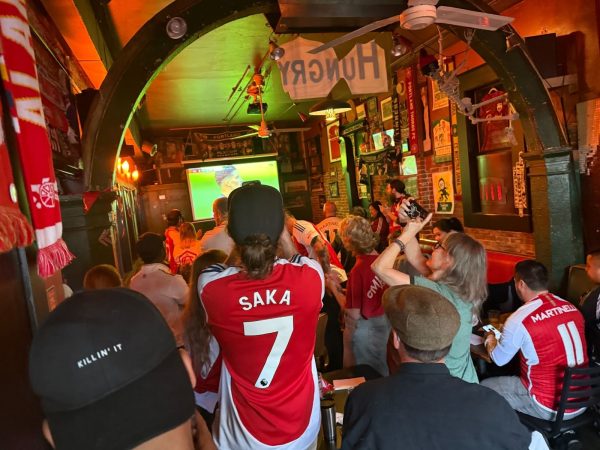
Football, or soccer, is widely considered to be the most popular sport in the world. The last FIFA World Cup final became the most-watched in World Cup history, with an approximate viewership count of 1.5 billion people; when not playing on their national teams, players fan out across the globe, seeking the opportunity to play within competitive leagues. One of the most popular leagues is the Premier League, England’s highest tier of football. Since its creation in 1992, the Premier League has evolved from a national competition into a global phenomenon, reaching fans all across the globe. Clubs like Manchester United, Liverpool, and Arsenal have built worldwide fanbases, and the league’s broadcasting deals reach audiences in nearly every country. According to the LA Times, “11 of [the Premier League’s] 20 clubs [are] under U.S. ownership … only four teams in the league are British-owned.” Despite this, only in the past 20 or so years has soccer begun to take off in the United States.
Many sports fans in the US have maintained a lack of interest towards soccer, instead gravitating towards baseball or American football, which both have more cultural significance historically — baseball gaining nationwide popularity in the mid-1800s and football in the early 1900s. Despite this indifference, a wave of American soccer teams in Major League Soccer (MLS), have been gaining notably more traction for the past couple decades. According to Sports Business Journal, during the past MLS season, there was around a 30% increase in viewership for regular season matches. The American women’s national team can be credited with a large rise in soccer culture and popularity in the United States; Brian Cape, a PE teacher at Franklin, and avid Manchester City fan, notes, “Americans love to win, and if you want to see wins, you need to watch the United States women’s national soccer team.” This is especially noteworthy when considering the record of the US men’s national team, who currently hold zero world cup titles in contrast to the women’s four. “[The US women’s national soccer team has] won a lot of tournaments like the World Cup and the Olympics, and are probably one of the best [teams] in the world as of right now — definitely contributing to the popularity of soccer in the US, and even more to women’s soccer in general,” says Braiden Bleibtrey, a junior at Franklin and Tottenham Hotspur fan.
In Portland, there are two soccer teams: the Timbers within the MLS and the Thorns in the National Women’s Soccer League. According to Bleibtrey, the difference between the Premier League and their equivalent American leagues is the quality of the soccer being played. “I think that a big difference in the leagues is that the MLS, aside from a lot of older players coming from Europe, doesn’t have a lot of world class players. MLS teams more often than not have homegrown players or players that come from other leagues that aren’t too well known,” he says.
The Premier League is often credited with being the best league in the world. “[You have] the top teams in the Premier League, you have some of the best players in the world on the same team and it’s really amazing to see that level of soccer being played,” states Bleibtrey. The appeal of the Premier League also has to do with the significance it holds in a cultural context. You don’t have to be a United Kingdom local to be familiar with the largest teams like Manchester United and Liverpool. Bleibtrey also attributes his interest in the Premier League to video games: “[M]y dad had an Xbox 360 and the first game I got was FIFA 13 and I remember really liking Gareth Bale who played for [Tottenham] at the time. That kinda sparked me into liking Tottenham.”
Despite soccer’s later rise to prominence in the United States, it continues to expand in popularity. The Premier League remains the gold standard as the league that players and fans alike look to as the highest level of play. Simultaneously, through this increase in popularity, the seed of soccer culture will continue to grow throughout the US, making it more accessible and enjoyable for everyone.



































